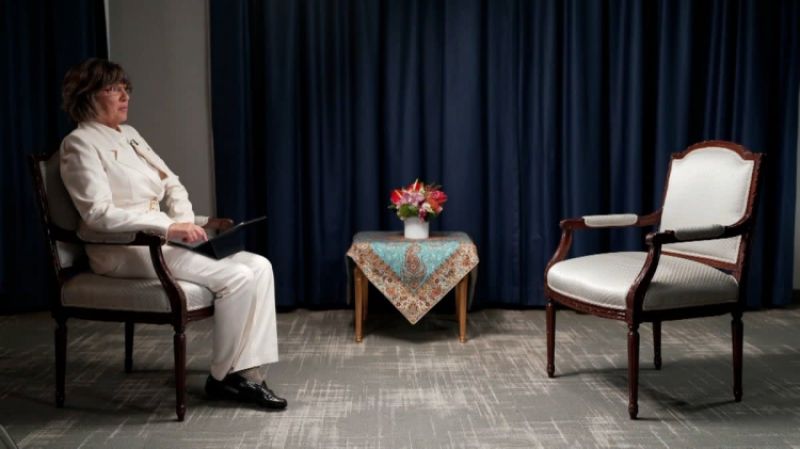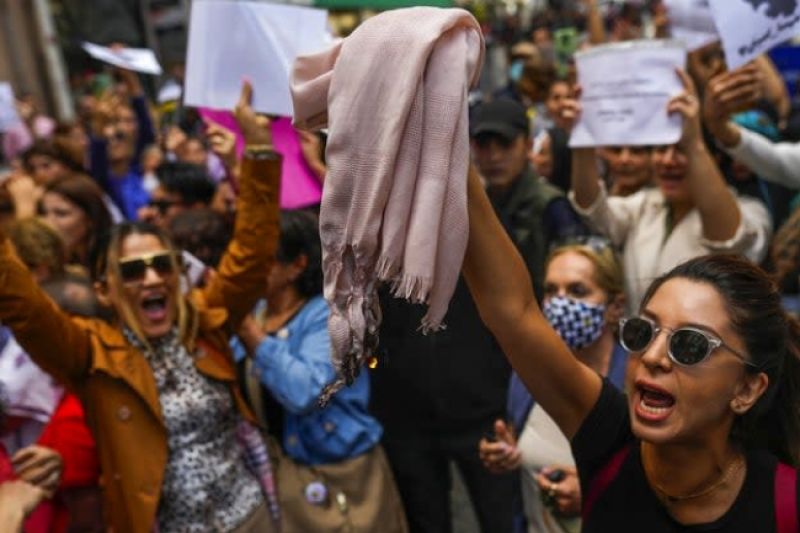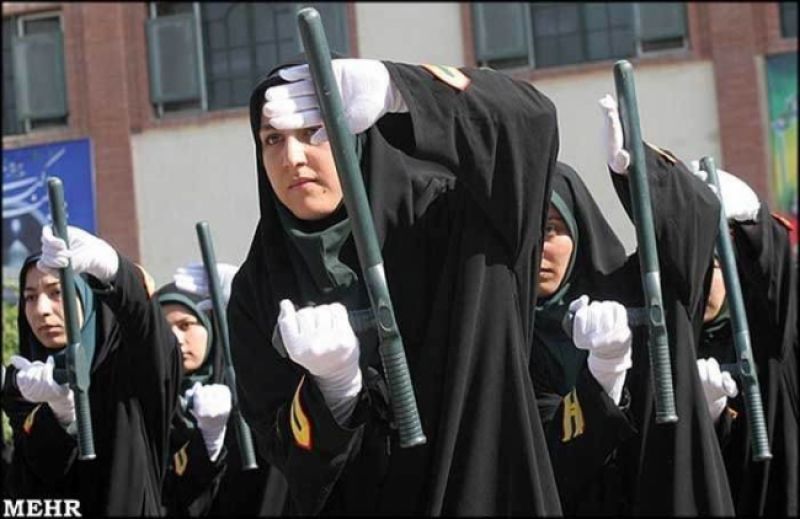
khabardunya.com
CNN anchor Christiane Amanpour refused to cover her head in front of the Iranian president
buzzfeed: Anger over the death of an Iranian woman who was detained by the morality police has morphed into widespread dissent against Iran's hardline Islamist regime. Clashes between protesters and Iranian security forces grow more heated each day. Women cut their hair and remove their hijab in public, defying the country's strict dress code.
On Wednesday, President Ebrahim Raisi was due to face questions about the deadly protests in a sit-down with CNN anchor Christiane Amanpour. But he abandoned the interview, Amanpour said, after she declined to wear a headscarf.
Raisi, a hard-line conservative who was elected president in June 2021, was in New York City for the UN General Assembly, where he criticized "the double standards of some governments regarding human rights" in a speech earlier that day. He had scheduled an interview with Amanpour in the evening, his first ever on US soil, the anchor said in a Twitter thread.

Forty minutes after the interview was supposed to begin, Amanpour said that his aide asked her to wear a headscarf, and she "politely declined."
"The aide made it clear that the interview would not happen if I did not wear a headscarf," she wrote. "He said it was 'a matter of respect,' and referred to 'the situation in Iran' - alluding to the protests sweeping the country."
Iran has been roiled by protests sparked by the death of Mahsa Amini, a 22-year-old Kurdish woman, while she was in custody of the morality police in Tehran.
Amini was arrested on Sept. 13 for having an "improper hijab" on and for wearing tight pants, Tehran’s police chief, Brigadier-General Hossein Rahimi, said. Women in Iran are required to cover their hair completely and wear loose clothes that conceal their body, as part of laws governing women's public presentation that were enacted after the Islamic Revolution in the '70s.

Authorities claimed that Amini had a heart attack while in custody, slipped into a coma, and died.
But officials' account of her death was widely rejected, including by her family, who said that Amini had no pre-existing health issues. Her father, Amjad Amini, told BBC Persian that he saw her bruised legs on her body, but he was not allowed to see the back of her head before she was buried.
Rahimi denied that she was beaten by police, calling the accusations "cowardly," Al-Jazeera reported.
Protests over Amini's death took place in her hometown of Saqez after her funeral on Saturday. They quickly spread across the country, growing in size and scope as protesters called for the downfall of the regime. Videos show women confronting armed officials, burning their hijab, and cutting their hair.
There is no official count of how many people have been killed amid clashes with security forces over the past week. The Associated Press reported that at least nine people have died. Iran Human Rights, an Oslo-based NGO, said 31 civilians were killed.
Mobile networks were also shut down, and access to Instagram and WhatsApp curtailed. Netblocks, which tracks network restrictions, said Iran is experiencing the "most severe internet restrictions" since the deadly November 2019 protests sparked by a gasoline price crisis.
Iran is facing international condemnation for Amini's death and the violent crackdown on protesters. People demonstrated outside Iranian consulates and embassies in cities around the world. On Thursday, the US announced sanctions on the country's morality police "for abuse and violence against Iranian women and the violation of the rights of peaceful Iranian protestors."

The Iranian government has targeted people who defy the mandatory headscarf law and protest the treatment of women in public spaces in the past. But authorities have expanded their enforcement of women's dress code in recent months, arresting and physically harassing women who they believe are wearing "loose hijab," the UN Human Rights Office said. The agency said it has verified videos of authorities slapping women, beating them with batons, and throwing them into police vans for not wearing a hijab properly.
An Iranian woman whom the BBC called Sara said the systemic oppression women face in public spaces is no longer tolerable.
"There is no freedom in Iran. For example, if I want to sing as a solo singer, there is no possibility for me. If I want to dance as a solo dancer, there is no possibility for me," she said. "Half of the occupations — I cannot be in those occupation because of my gender, because of Islamic rules that they apply in our country. So there is no freedom for us."













Leave a review